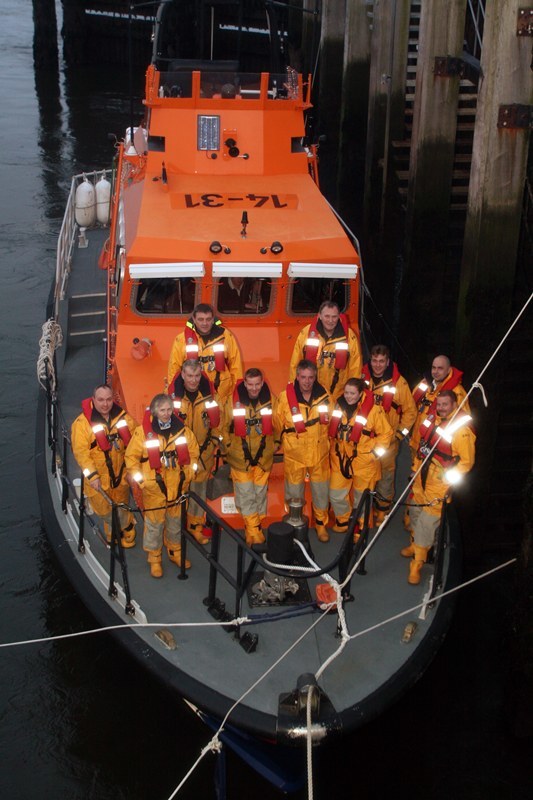Broughty Ferry’s RNLI crew are bracing themselves for a big rise in shouts as the summer holidays get under way.
The team of volunteers, who are based in the lifeboat station in Fisher Street, were the busiest crew on the east coast of Scotland last summer, with their two boats launching a total of 38 times between June and August.
According to coxswain Murray Brown, they have been surprisingly quiet over the past month, despite the handful of sweltering days that have attracted crowds of people to the area’s beach.
But with the weather set to improve over the coming weeks and the school holidays well on the way, Mr Brown says it is only a matter of time before things start to pick up again.
He said, “There are generally more people out and about doing things, so we see more calls coming in.
“We’ve been dead as dodos this is probably one of the most quiet years we’ve had, for some reason.
“I know numbers have been up elsewhere, and they were well up last year.
“It’s hard at the end of the day being a lifeboat crew, we want to be out and about. But if you’re not getting called out that’s also a good thing.
“I do a lot of talks at schools advising young people to be careful when they go to the beach.
“I’m not saying not to go at all, but just be very aware of your surroundings.
“Most of our shouts through the year are related to leisure activities, for example people being out in boats and not doing their checks before they go out, people running out of fuel, adverse weather and getting caught out by the tide.
“We recently had a call from a boy who was out on his bike near Tentsmuir and became stranded on a sandbank, cut off by the tide.
“We would just urge people to be very, very careful.”
Last year, the RNLI in Scotland experienced one of its busiest summers on record, with 429 launches across the country throughout June, July and August.
According to recent statistics, the May Bank Holiday weekend and the one prior to this when the UK basked in hot temperatures were the busiest of the whole year so far for the charity.
To help people stay prepared, advice has been released, including using a life jacket, knowing how to handle a boat, checking weather and tides before heading out and carrying a means of calling for help like a VHF radio or flares.
When at the beach, the RNLI say people should check times of high and low tide to avoid becoming stranded and, where possible, swimming at a lifeguarded beach.
In addition, they advise against using inflatables in strong winds or rough seas.
The charity has also been highlighting the dangers of “tombstoning” when thrill-seekers dive off rocks and sheer cliff faces into water.
During the past five years, there have been 139 tombstoning incidents in the UK requiring an emergency response, with 12 resulting in fatalities and many more resulting in spinal and limb injuries.
